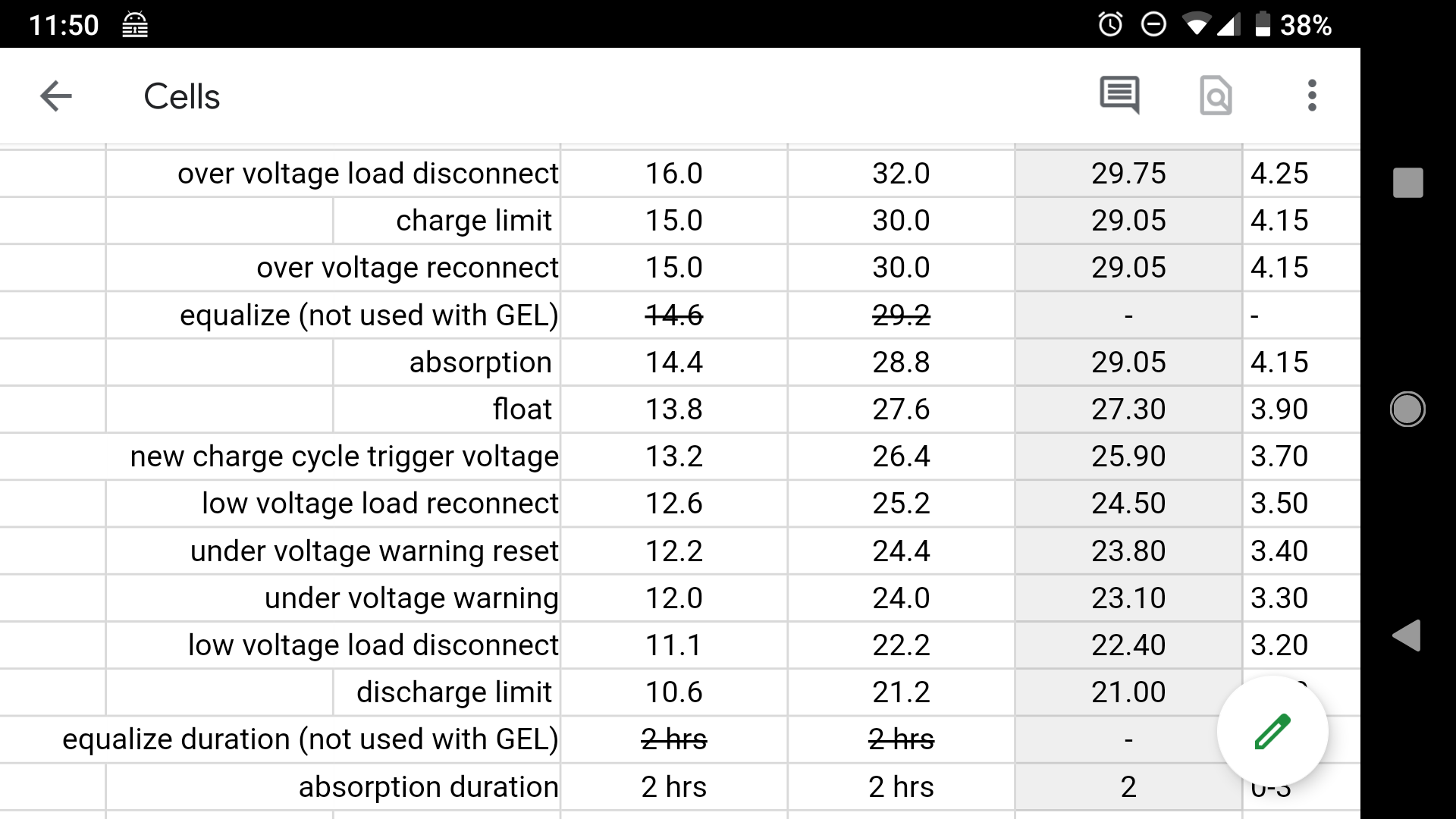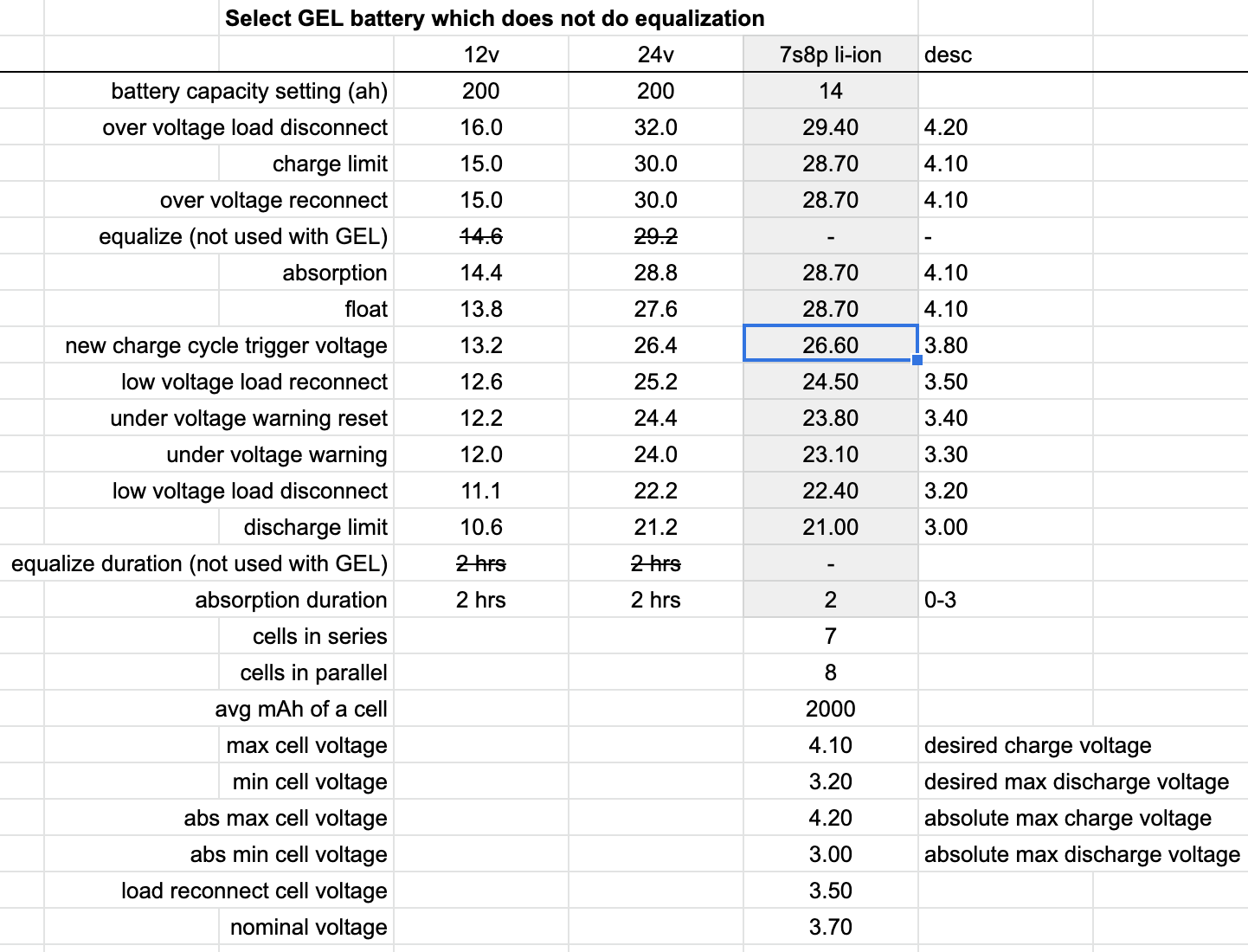Hi, I am planning to charge a 7S?P battery of 18650 cells with a charge controller normally intended for led acid battery.
I created a spreadsheet with my parameters, I would like a second opinion. I have a hard time deciding on the float/absorption voltages. I live in Morocco, plenty of sun and dead laptop batteries.
In the spreadsheet we can see the defaults for 12 and 24 volts and the values I decided for the battery (column in grey):

EDIT: adding new values:

Thanks!
